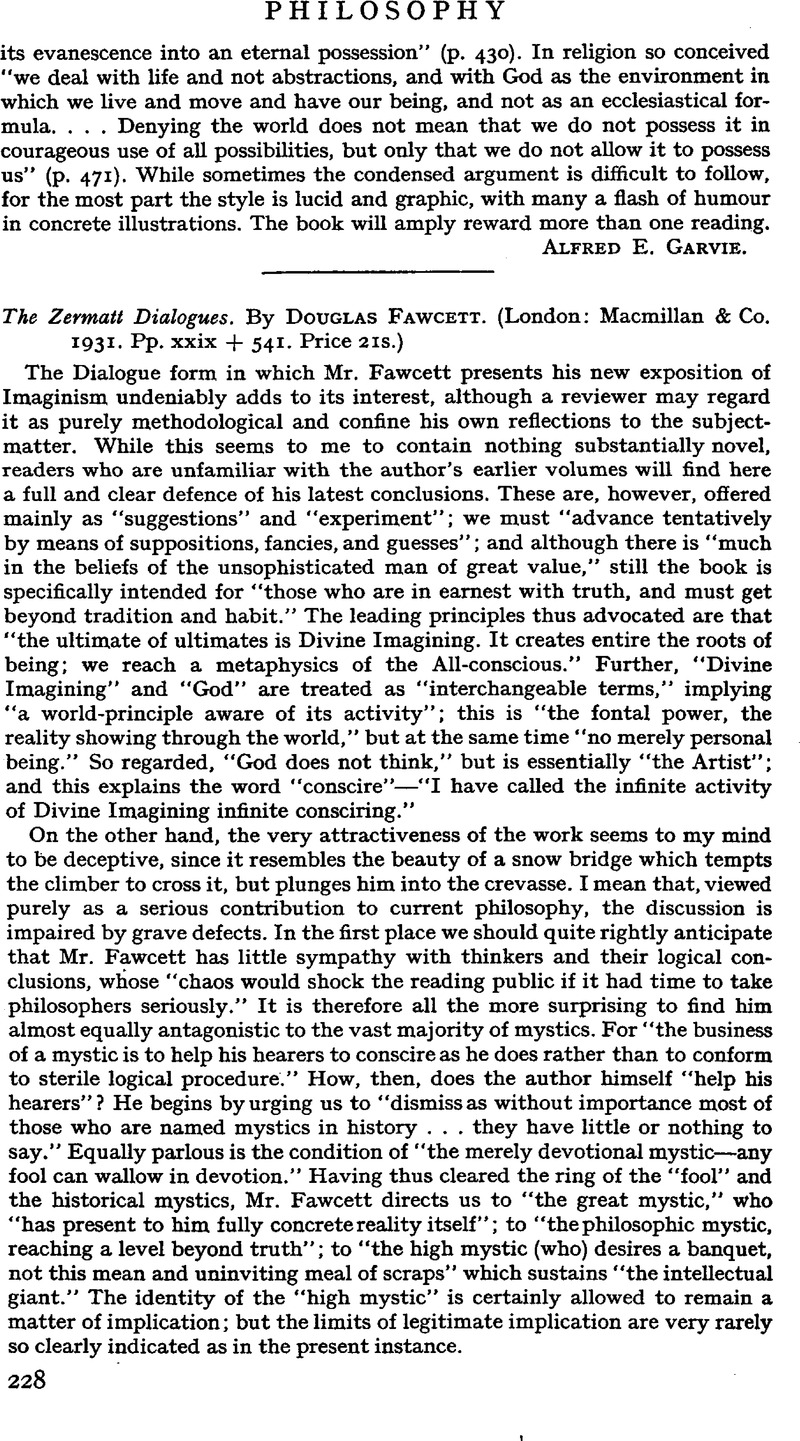No CrossRef data available.
Published online by Cambridge University Press: 25 February 2009

page 229 note 1 Mr. Fawcett also accepts, quite uncritically, Eddington's suggestions on Indeterminism; he ignores the protests of Lodge, Allen, and others, and misinterprets the Principle of Indeterminacy.
page 229 note 2 The Logic of Hegel, p. 173.
page 229 note 3 Ibid., pp. 67, 94, 413. The Science of Logic, vol. i, p. 168. For "the fundamental thesis of idealism of. Wallace, The Philosophy of Mind, p. 116; Prolegomena, p. 293; also Reyburn, Mind, October 1913.
page 230 note 1 Planck, ,Nature, vol. cxxviii, p. 605Google Scholar; Andrade, ,The Mechanism of Nature, p. 138Google Scholar; Husserl, , Ideas p. 93Google Scholar; cf. p. 94 on “fancy.” (The italics are mine.)
page 231 note 1 The Science of Logic, vol. i, p. 62; vol. ii, p. 247.
page 231 note 2 Bosanquet, , Philosophical Theory of the State, p. xliii.Google Scholar
page 231 note 3 The Science of Logic, vol. i, p. 69. Cf. Wallace, , Philosophy of Mind, p. 12Google Scholar: “the realm of pure thought is only the ghost of the reality of knowledge, and must be re-indued with its flesh and blood.” Bosanquet, , Principle of Individuality, p. 55Google Scholar: “the ultimate tendency at thought is to constitute a world.”
page 232 note 1 The Logic of Hegel, p. 373; Religion and Philosophy, p. 116.
page 232 note 2 Cf. Stout on Change, in Mind and Matter, pp. 101, 125.
page 232 note 3 Hegel's Philosophy of Fine Art, p. xxx; The Logic of Hegel, pp. 274, 373; Value and Destiny, p. 242.